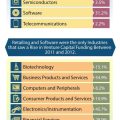What Is Seed Funding? A Simple Definition Of Seed Capital
Seed capital also referred to as seed funding is a commonly used term in the business world. But what does it mean and how exactly is it used? Well, in this article I will try to explain its basics. So, seed funding is a form of financing in which the owner of a business receives money in exchange for a part of the equity of his/her company. It is called ‘seed’ because it happens at the very beginning of the business before even the latter generates any money (before it is started). This makes seed funding a very risky investment and this is why traditional financial institutions such as banks and credit companies are typically not eager to provide it. Forms of this type of financing are crowdsourcing and angel funding. Money from friends and family and personal savings are also included here. The higher the risk, the greater the required return is. This is why angel investors for example usually aim at startups with big growth potential, which can generate two, or even three digits yields.
Seed funding is the process of using a relatively small amount of capital to test out the idea or product of a startup. It is typically used during the early phases of development, allowing the business or product to launch and reach its full potential. The funding is generally provided by investors and works in the same way as venture capital: there is no assurance that the return on the investment will be worthwhile because there is no guarantee the startup will succeed. Seed funding is akin to hedging a bet: it’s assumed these businesses may not take off, so the risk is lower and the potential for larger returns increases.
The difference between venture capital and seed funding are mentioned in the table below:
| Seed Funding | Venture Funding |
| Very early business stage | Later stage of the business |
| Usually Private investors | Institutional investors |
| Relatively small investments | Relatively big investments |
| High-risk | Moderate risk |
The similarities between these above are that in both cases, the investors acquire a part of the company/business in exchange for their money. According to recent studies, around 95% of new companies are funded with the help of angel investors, friends, and family, or entrepreneur’s savings.
So that’s all on this matter folks. Did you like this simple article and do you think it’s useful? If so, please, consider sharing it by pressing some of our social buttons below. Also, you shouldn’t miss checking out some of the suggested articles about startup financing below. We think they are really good, tell us about them.






